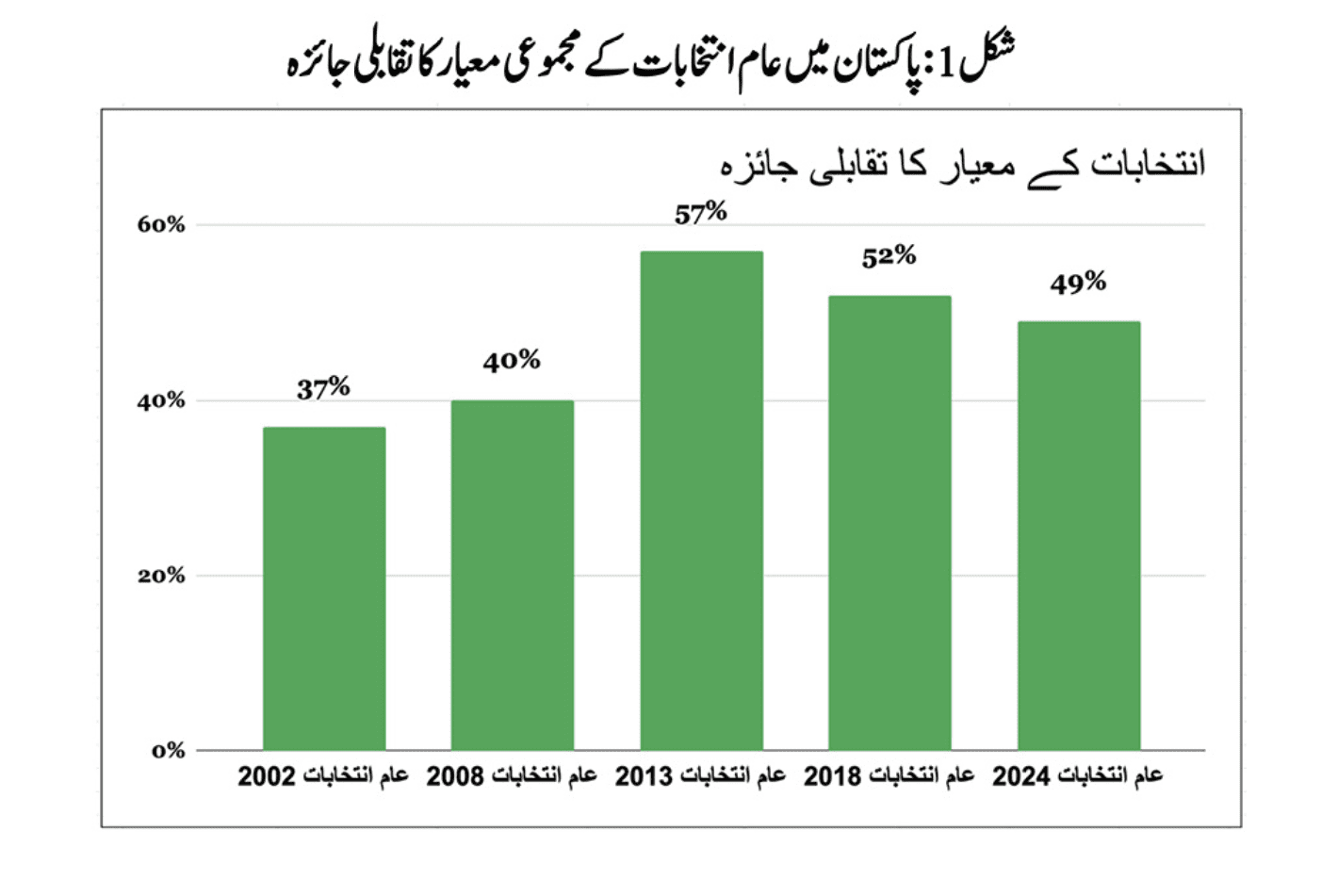The Pakistan Institute of Legislative Development and Transparency (PILDAT) has raised alarms over the fairness of the 2024 General Election in Pakistan, indicating a noticeable downturn in the integrity of the electoral process. This revelation comes from an exhaustive analysis that scrutinized the election from the pre-polling phase through to the post-poll aftermath as per the report.
An investigation into several election-related issues that is “thorough and impartial” has been suggested by the Pakistan Institute of Legislative Development and Transparency (Pildat) to the Election Commission of Pakistan (ECP).
The Elections Act of 2017 mandates that signed copies of forms 45, 46, 48, and 49 be published within 14 days of polling day. Other examples of noncompliance with this requirement include failures to plan ahead for the possibility of EMS inoperability, which results in a lack of preparedness for meeting result issuance deadlines.
Pildat also suggests granting election tribunals the authority to decide cases individually.
“Pildat is deeply concerned that only two Election Tribunals have been constituted in Punjab compared to eight constituted after 2018 general election and nine reportedly requested by the ECP this time,” according to an assessment by the group.
It also demanded that a Commission of Enquiry be formed similar to the one formed to probe the 2013 election.
KEY FINDINGS FROM THE ASSESSMENT
PILDAT’s comprehensive report unveils several critical issues that marred the election’s credibility. Notable among these were instances of political repression, interruptions in mobile and internet connectivity on election day, protracted delays in the announcement of results, and sluggishness in the public disclosure of essential electoral documents by the Election Commission of Pakistan (ECP).
COMPARATIVE FAIRNESS SCORES
The assessment’s findings are alarming, with the pre-poll phase achieving a mere 50% fairness score, aligning with the 2018 election but falling short of the 62% marked in 2013. The voting and counting phase, alongside the post-poll phase, also witnessed declines in integrity and transparency, underscoring a concerning trend away from democratic norms.
PILDAT’S RECOMMENDATIONS FOR IMPROVEMENT
In response to these challenges, PILDAT has put forth a series of recommendations aimed at enhancing the electoral framework. Among these, the call for a “thorough and impartial investigation” into the delays and discrepancies noted during the election stands out as a critical step toward restoring faith in Pakistan’s electoral system. Furthermore, PILDAT advocates for the expansion of election tribunals and the establishment of a Commission of Enquiry, akin to the one formed post the 2013 election, to delve into the observed irregularities.
LEGAL INTERVENTION AND UPCOMING NATIONAL ASSEMBLY SESSION
Amidst these developments, the Peshawar High Court’s recent intervention, pausing the oath-taking of lawmakers elected to reserved seats, adds another layer of complexity to the unfolding electoral narrative. This legal stance, precipitated by a petition from the Sunni Ittehad Council, underscores the contentious atmosphere surrounding the allocation of reserved seats and the broader challenges facing the electoral process in Pakistan.




















